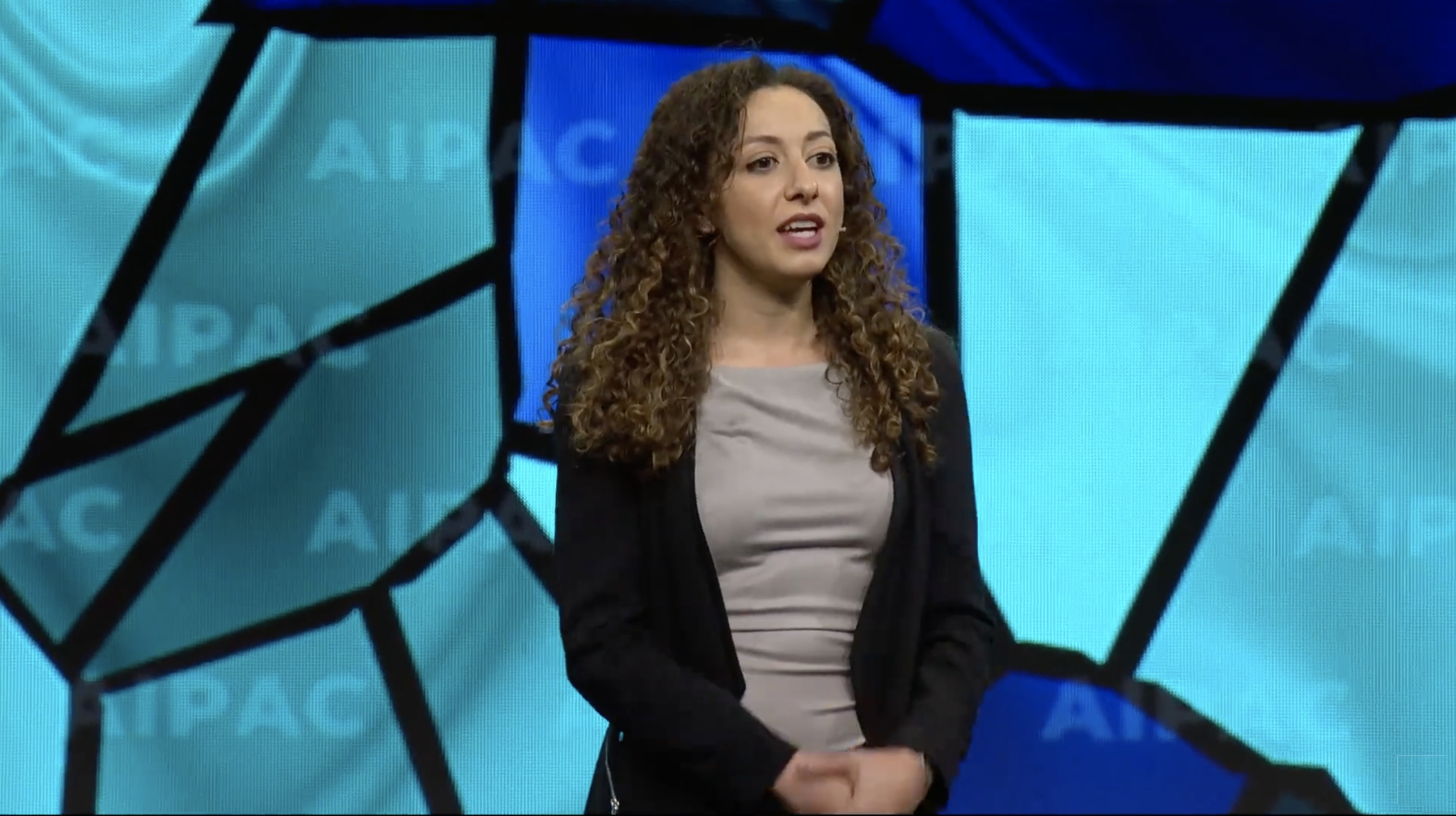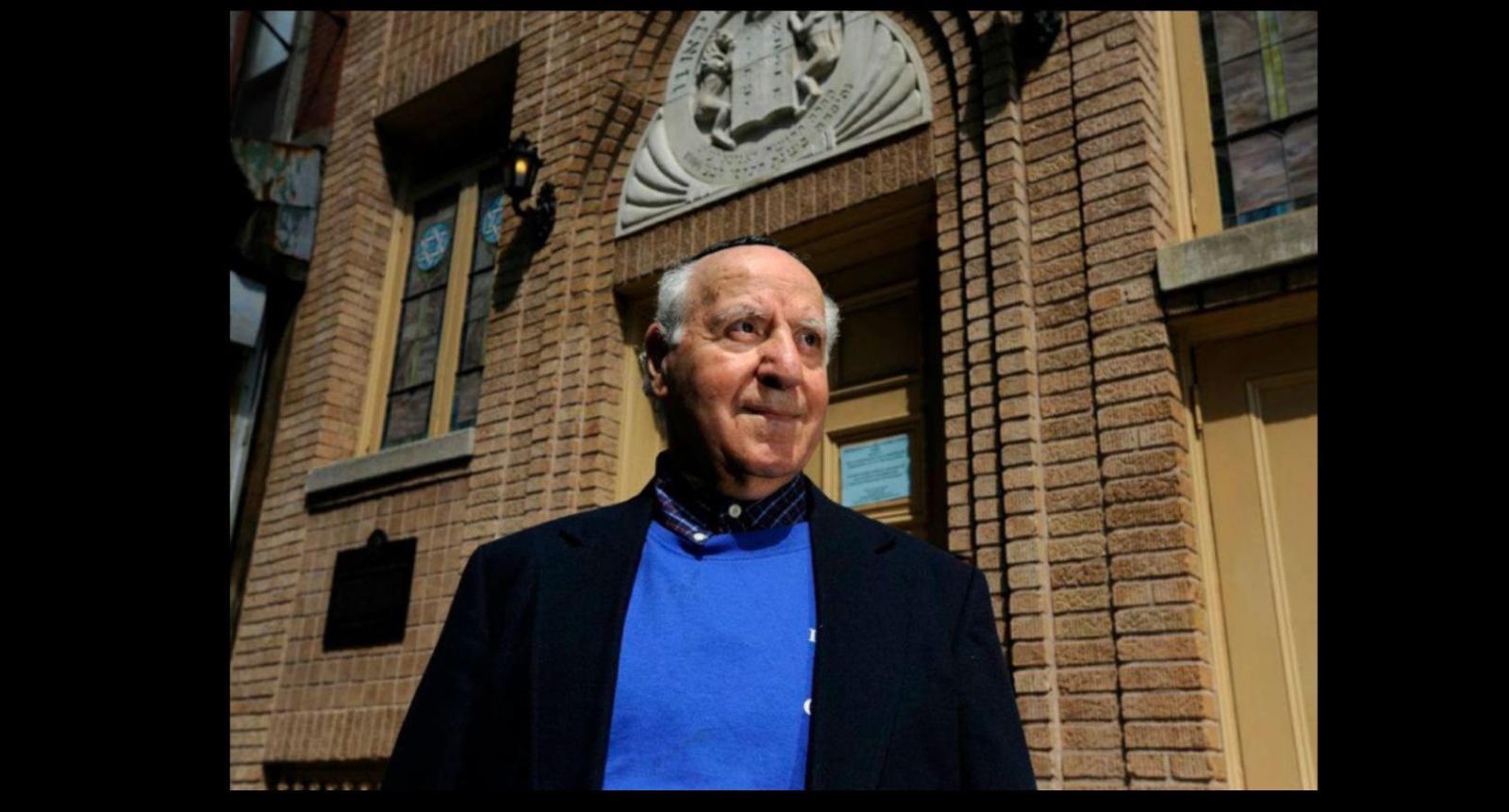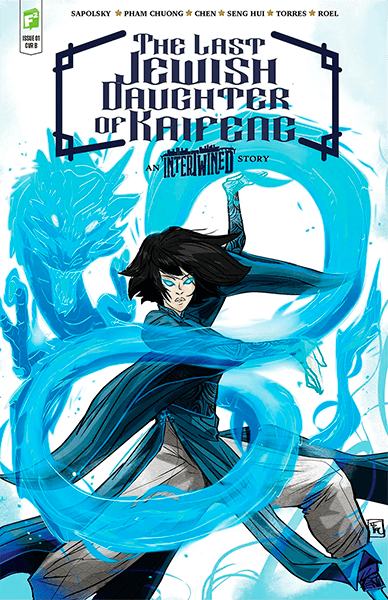To the best of her knowledge, Rabbi Tarlan Rabizadeh is the first Persian-speaking woman, born to two Iranian parents, to become a rabbi—certainly the first in the Reform movement.
She grew up in the Persian Jewish community in Los Angeles, often referred to as “Tehrangeles.” Her spiritual leader was Rabbi David Shofet, the senior and founding rabbi at Nessah Synagogue in Beverly Hills, one of the most important centers of Persian Jewish life in the United States. Her family all live in Los Angeles, which today boasts the largest concentration of Persians outside of Iran. The community represents home, she said in a recent interview, but she had to break out in order to pursue her dream of becoming a rabbi.
Rabizadeh received her rabbinic ordination from the Hebrew Union College – Jewish Institute of Religion, in New York City, in 2018. Following her ordination, Rabizadeh joined The Kitchen—a non-denominational “startup” community in San Francisco led by two other female rabbis—as a Jewish Emergent Network rabbinic fellow. During her time there, she has worked to share the richness of her heritage and learn how to combine progressive values and practices with Jewish tradition.
“At The Kitchen, one of the things that I’ve learned is that for female rabbis, being strong often means having a strong voice and calling out patriarchy,” she said.
Rabizadeh said she identifies strongly with another Jewish Persian woman who used her voice to create change: Queen Esther, who helped save the Jews of the Persian empire from extermination by the evil Haman in the 4th century BCE. “What I admire most about Queen Esther is that she did not deal with adversity head on. Rather she used the tools that she had at her disposal, her femininity and charm, and found a way to achieve her ultimate goal of saving the Jews from total destruction in a way where the king was able to hear it.”
Rabbi Noa Kushner, the founder of The Kitchen, called Rabizadeh a “magnificent teacher” and credited her with helping to make The Kitchen a more diverse and welcoming space.
“She teaches with her whole self, her whole neshama [soul] and the way she lives her days,” Kushner said. “She has brought her unique chesed [kindness] to our community, by always offering meals and hospitality, her personal attention, as well as her Torah. We understand now, in the best way, that to be ‘Ashkenormative’ robs us of deep Jewish tunes, traditions, recipes and customs. The Kitchen will never be the same after learning from Rabbi Tarlan and being the blessed recipient of all her many gifts.”
Rabizadeh’s parents were already living in the United States and attending college when the Iranian Revolution broke out in 1978. They eventually sought asylum and were granted citizenship, and the rest of her extended family joined over time. As part of the first generation born American, Rabizadeh’s first language was Persian (Farsi), and in many ways, she felt ostracized at the Jewish day school she attended. “It was hard always feeling different,” she said. “Different food. Different values. But when it came to Judaism, even though the tunes were different, we all ultimately prayed the same prayers and studied the same Torah.”
She credits her high school teacher at Milken Community in Bel Air, Rabbi Sharon Brous, for inspiring her to pursue the rabbinate. “I had seen female rabbis before, but I hadn’t been inspired by one before,” she said. “But Rabbi Brous was the first person to ever help me realize that this is something I could do too.” (Rabbi Brous would go on to establish IKAR in Los Angeles.)
On a recent Friday night at The Kitchen, which meets at the San Francisco Friends School, Rabizadeh helped to lead the Maariv service, though she would call it the Aravit service. During the Mi Chamocha prayer, she added Miriam’s name after Moses—”Your children beheld Your Majesty, as You split the sea before Moses and Miriam.” The change, she explained later, was specified by Rabbi-Hazzan Jessica Kate Meyer and reflects The Kitchen’s commitment to making room within the tradition to be “more inclusive so that it isn’t limited to heteronormative values.”
The path that Rabizadeh has chosen can be challenging, according to Rabbi Dianne Cohler-Esses, associate rabbi at Romemu in New York City and another trailblazing female rabbi.
“In the beginning I was very much defined in my own mind and by everyone else as the first Jewish Syrian woman to become a rabbi,” she explained. “But over time you kind of become who you are and integrate into whatever community you find yourself in and bring the gifts you have.”
Cohler-Esses offered the following advice to Rabizadeh: “If there’s any way that she can hold the community she comes from and the world she is now part of, if that’s possible for her, I would advise that she do that because one world enriches the other.”
After Rabizadeh’s contract at The Kitchen expires at the end of June, she intends to return to Los Angeles and “gauge the temperature and evaluate what has changed and what’s going on these days.” She said she has hopes to one day start her own minyan—one that embraces progressive values, while simultaneously honors the Persian traditions and rituals of her upbringing.
“I want to make a difference long term,” she said. “Not only for this first generation of Persian-Americans. But also for the next. And especially, I want other girls, daughters, wives and mothers to feel that they too can break through the norms that have been set before us. I want them to also have a shot at discovering who they really are, who they have the potential to become.”
Rabbi Rabizadeh will be speaking at the Jewish Community Library in San Francisco on Thursday March 12, about the Persian Jewish community today– in modern day Iran and in Los Angeles– as well as her journey in the rabbinate. More information can be found here.







